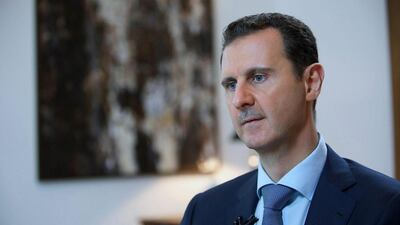Russia’s intervention in Syria and the nuclear agreement between the group of six nations and Iran have had various repercussions on the balance of power throughout the region. As a consequence, the foreign and internal politics of several countries have seen great change over the past few months, Arabic-language columnists have noted.
In the pan-Arab daily Asharq Al Awsat, Iyad Abu Shakra wrote that the crisis in Syria was reminiscent of painful chapters in the history of Palestine.
He said that “the same religious, cultural and selfish considerations” that were developed about 100 years ago as part of the deal to divide the legacy of the Ottoman Empire were still alive. The writer cited the Sykes-Picot redrawing of the borders in the Middle East and the Balfour Declaration that led to the creation of Israel.
“The Syrian revolution, much like Palestinian intifadas during the first decades of the 20th century, began as a popular uprising demanding freedom and dignity and the right of self-determination,” he wrote.
“But it soon found itself besieged by the ‘game of nations’ which does not give the slightest importance to the rights of the people.”
Little by little, truths began to unfold as the balance of power changed on the ground, he said.
The writer said that Washington had exerted pressure on the Syrian opposition, which was besieged by the Iranian occupation, Russian air strikes and ISIL terrorism.
Citing American journalist Seymour Hersh, Abu Shakra said the US joint chiefs of staff and ministry of defence intelligence officers had collaborated with the Russians, Israelis and Germans to save the regime of Bashar Al Assad.
The writer concluded that, in recent years, the US had completely backed Moscow’s position – and the opinions of Israeli intelligence – towards the regime and the opposition in Syria.
Writing in the pan-Arab daily Al Hayat, columnist Ghazi Dahman said that Russian president Vladimir Putin had adopted stringent tactics to deal with the Syrian crisis on the basis of "comprehensive terms that cannot be modified or developed".
He said Mr Putin had been incentivised by factors including the apathy of the Obama administration, contradicting attitudes within the US defence and intelligence agencies, and the unclear position of Nato towards the Russian action.
Mr Putin, in turn, had been forced to use the operational tools provided by Iran in the field, such as brigades and militias.
Russia had effectively entered a military alliance led by Iran to which Moscow contributes in the form of operational planning, goal-setting and the exchange of information and intelligence.
Dahman said that Moscow may appear to have control over its actions, but it was in fact simply bombing Tehran’s enemies in Syria or otherwise “keeping them busy.”
“It is doubtlessly a golden opportunity for Iran and one that may not reoccur any time soon,” he concluded. “Iran will work on perpetuating the situation for as long as it possibly can. ”
* Translated by Carla Mirza
CMirza@thenational.ae

